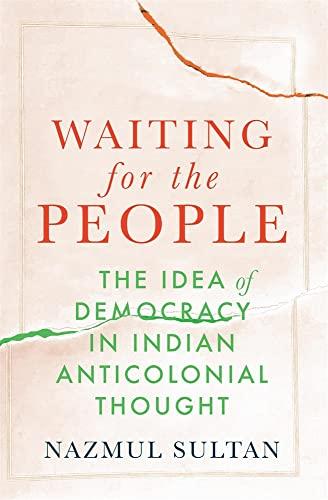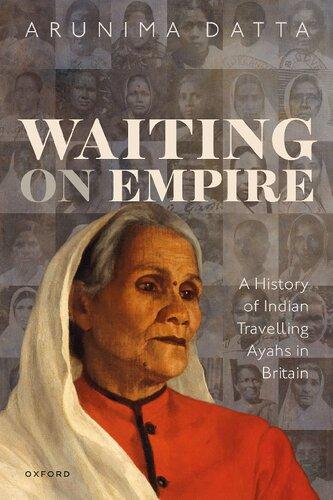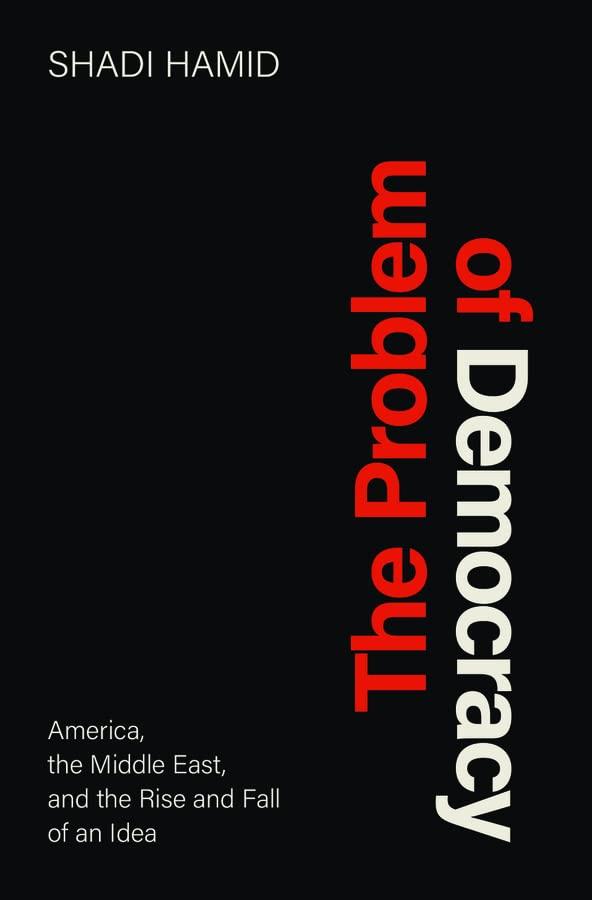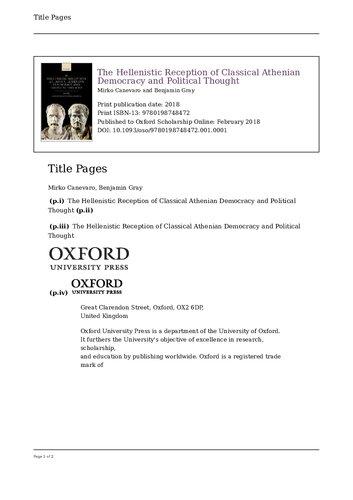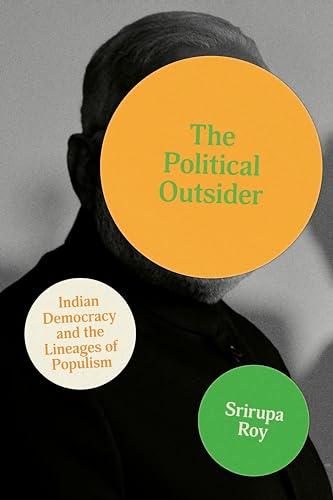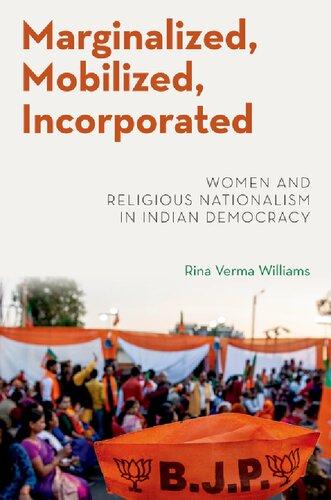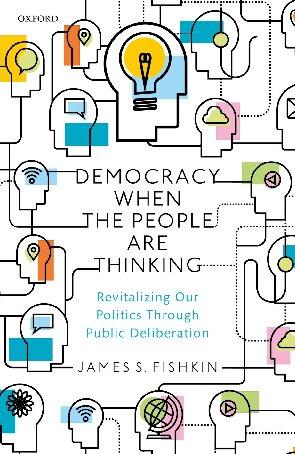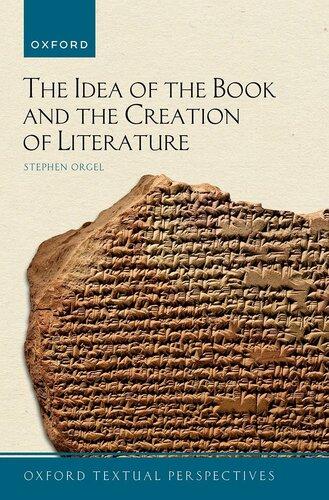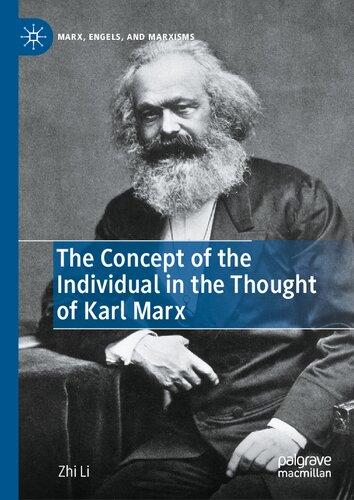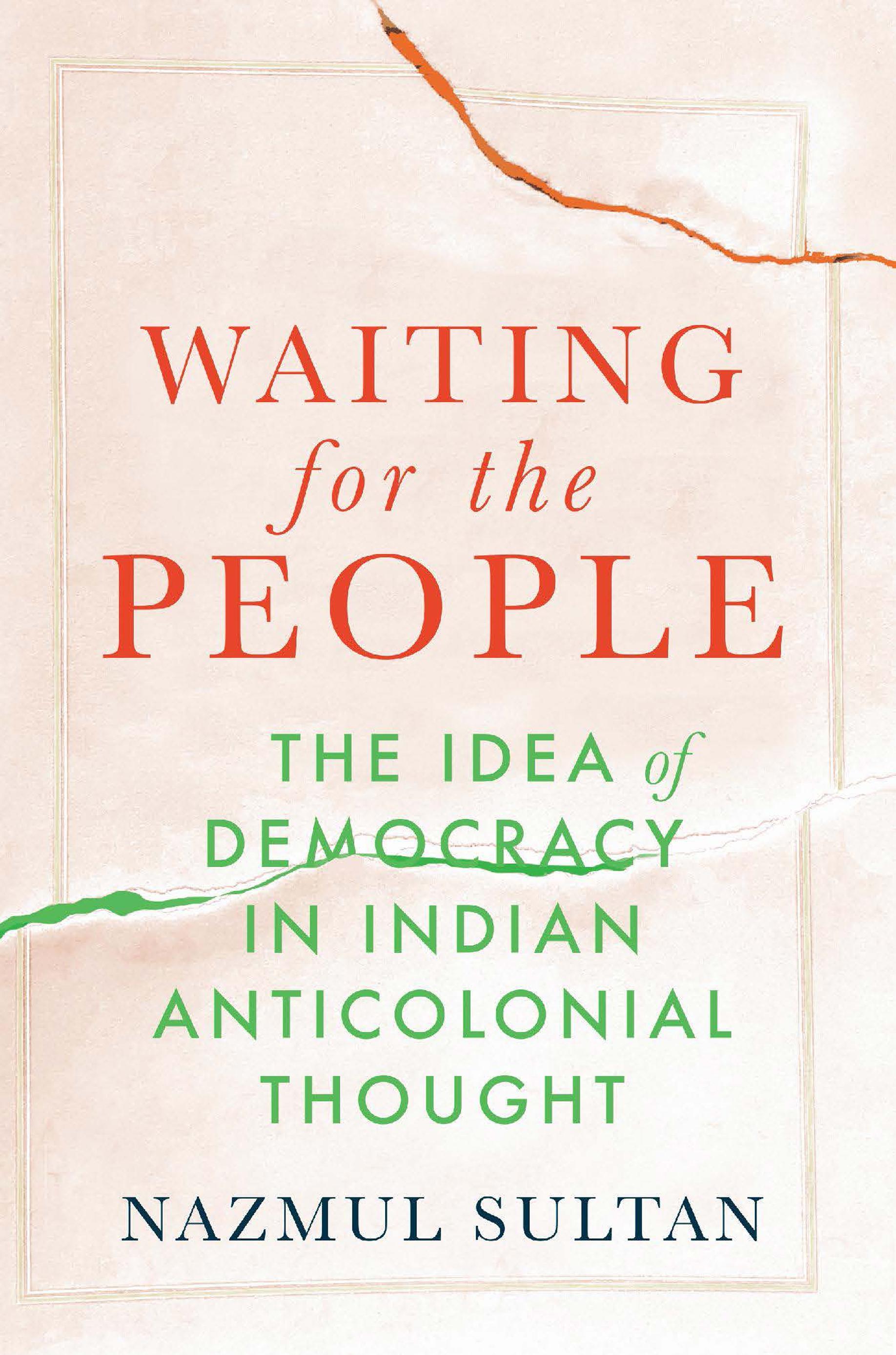INTRODUCTION
Waiting for the People
IN 1887— STILL the early years of organized anticolonial politics in India—Bipin Chandra Pal (1858–1932) observed that “the glorious annals of the Hindoo and Mahomedan periods of Indian history have recorded the achievements of priests and princes, of skillful generals and wise statesmen, and profound thinkers, but the name of the people is nowhere to be found in them.” Pal surmised that “the Indian people ” simply did not exist as a political entity prior to British rule. For all his discontent with the colonial state, the future “prophet of [Indian] nationalism” concluded that the Indian people were being “called into existence” by the British.1 By this point, Pal’s argument was widely shared by political thinkers across the imperial divide. Two decades before Pal, Edwin Arnold, a noted Indologist and historian of British India, had proudly claimed: “We are making a people in India where hitherto there have been a hundred tribes but no people. . . . We are introducing an idea unknown to the East, as it was unknown to Europe before commerce—the idea of popular rights and equality.”2 Hidden in his mammoth history of Governor Dalhousie’s regime in India, Arnold’s celebration of the democratic “contribution” of colonialism was very much a distillation of the argument that foundational British political thinkers such as John
Stuart Mill and Thomas Babington Macaulay had already helped establish. Yet the question of the Indian people— despite its putative historical nonbeing—proved to be both tenacious and decisive. This book is the story of the abstract figure that shaped the terms of anticolonial struggle and the pursuit of democracy in India: the people.
The Indian anticolonial democratic project would be fundamentally driven by the perceived need to transform the historically “backward” and pol itically amorphous colonial “masses” into the people: this I call the problem of peoplehood. There was more to the problem than the challenge of constituting preexisting groups into a cohesive p eople, which is an indispensable element of democ ratic politics anywhere. Rather, because the political qualities of peoplehood themselves appeared to be a product of historical development, the project of turning the masses into the people became embroiled in a set of paradigmatic problems ultimately to do with the conditions of possibility of democracy in the colonial world. As a conceptual dilemma proper, this problem of peoplehood transcended its British uses as a legitimating trope. Nearly all the canonical anticolonial thinkers—ranging from Surendranath Banerjea (1848–1925) to Jawaharlal Nehru (1889–1964)— strug g led with the seemingly irrefutable premise of an absent Indian peoplehood. Having offered compelling arguments for Indian self-r ule, thinkers as dif ferent as Dadabhai Naoroji (1825–1917) and Bal Gangadhar Tilak (1856–1920) found themselves left with a “not-yet” people whose right to self-government could not be articulated in sovereign terms. B. R. Ambedkar (1891–1956), a fter submitting the draft constitution of the new republic of India, considered it necessary to remind his audience that Indians were still not a people at home with the demands of democracy. 3 The figure of the people—the sine qua non of modern democracy—had turned out to be the marker of an enduring problem in India.
Contrary to the well-worn trope, the history of popular sovereignty in the colonial world was not simply one of sovereignty denied (by empire) and reclaimed (by anticolonial actors). The structure of the “denial” unalterably transformed the meaning of popular sovereignty and democratic government for Indian political thinkers. Modern colonialism was not simply a new spin on the timeless trope of conquest, nor was anticolonial political thought a mere exercise in overcoming foreign rule. From the nineteenth century onward, colonialism was understood and
justified in what might be called democratic terms. Central to the democratic signification of colonialism had been the framework of developmentalism, whose historical and analytical purchase surpassed its use as an imperial promise of prog ress. That British rule was an undemocratic form of foreign rule was not in doubt. Yet the developmental horizon initially claimed by the empire ultimately became inseparable from the emergence of democracy as a globally legible category. The developmental vision located the source of global p olitical differences in different stages of peoplehood, thereby rendering the globe pol itic ally thinkable as a hierarchy of peoples.
The question of the people consumed Indian political life well before its juridical triumph at postcolonial founding: the force of its purported absence had already begun to shape political imagination in the nineteenth century. That the power exercised by “the authority of the ‘absent people’ ” i s a constitutive element of modern parliamentary democracy has been underscored by scholars of democracy.4 Its reach, however, was deeper in colonial India and of a fundamentally dif ferent sort, for it originated a political tradition where democracy itself was experienced in a distinct manner. Thanks to the diagnosis that the people as a political entity was lacking in India, the premise of sovereign peoplehood could not be taken for granted; it had instead turned into the goal to be aspired for. Self- government, then, appeared to be something not so much authorized by the people as generative of sovereign peoplehood. Against this backdrop, Indian political thinkers took it upon themselves not just to reclaim the sovereignty denied to their people but also to address the theoretical assumptions that rendered the demo c ratic ideal compatible with the imperial geography of the globe. At once the ground and promise of colonialism, the figure of the people came to be central to Indian anticolonial thinkers’ quest for democracy in a world fractured along the purportedly measurable capacity for self-r ule.
THE GLOBAL CAREER OF POPULAR S OVEREIGNTY
Though the study of popular sovereignty has long been beset with fundamental disagreements, the conflicting series of propositions associated with the discourse of popular sovereignty have propelled, rather than stymied, its emergence as the ground of modern democracy. Popular
sovereignty thrived, as it were, on its many claimants and detractors. Reflecting on the revolutionary origins of the idea of popular sovereignty, Hannah Arendt speculated that “if this notion [le peuple] has reached four corners of the earth, it is not because of any influence of abstract ideas but because of its obvious plausibility u nder conditions of abject poverty.”5 I do not share the assumption that “abstract ideas” of the people were unimportant in the global c areer of popular sovereignty, or that “abject poverty” has a universal political import.6 However, Arendt’s underscoring of the singular global reach of the popular sovereignty discourse captures a point of utmost importance: if democracy has now acquired the status of the sole “secular claimant” of political legitimacy,7 it is primarily because of the incontestability of the foundation of popular sovereignty.
While representative and centralized forms of democ ratic government faced much skepticism in the global nineteenth and twentieth centuries, the sovereignty of the people, as an ideal, met with no meaningful normative challenge. A fter storming the heaven of sovereignty, 8 the “people” seemed to have conquered the globe— s ometime between the g reat eighteenth- c entury revolutions and mid- t wentieth- century decolonization, and somewhere behind the main stage of social and economic history. The story of this singular conquest is generally told with reference to the tremendous social and economic transformations of the nineteenth and twentieth centuries. But alongside these changes, the global rise of the people was also a story of intellectual transformations. The stubborn per sist ence of diffusionist approaches in the global history of democracy means that the framework of dissemination and reception tends to obfuscate the transformation and reconstitution of demo c ratic ideas themselves. As we shall see, anticolonial aspirants for popular sovereignty were locked in a conflict with an imperial project that had—however contradictorily— sought to derive its legitimacy from a contesting, global narrative of peoplehood. It is partly due to the history of this conflict that the age of decolonization doubled as the global vindication of popular sovereignty.
The strength and ubiquity of popular sovereignty lies in its roots as a discourse of authorization. The modern recognition that the figure of the people no longer amounts to a “visibly identifiable gathering of autonomous citizens” 9 shifted the primary stake of the popular sovereignty
discourse to the processes of claiming authorization from the abstraction called “the people.” Invocations of the people in political modernity are necessarily an exercise in speaking in the name of an entity that does not empirically exist as a homogeneous, empirically locatable subject. This foundational abstraction of “the people” notwithstanding, much of the contemporary theoretical dispute around popular sovereignty concerns not whether the people is the ultimate political authority but instead how to enact and institutionalize the authority vested in it. Regardless of how critical of popular rule a contemporary liberal political thinker might be, the procedure of popular consent—which traces the sovereignty of the state to the people—is essential.10 Radical democrats—while overwhelmingly critical of representative democracy—a rticulate their extrainstitutional vision of democracy through the figure of the people.11 Deliberative democ ratic theorists too find it necessary to account for a procedural authorization of rights and laws in the w ill of the p eople, notwithstanding their attempts to render the people as “ ‘subjectless’ forms of communication circulating through forums and legislative bodies.”12 Though disagreements over what exactly constitutes popular authorization—a nd how it must be pol itically instituted—are abundant,13 what has come to be beyond dispute, barring some residual protestations, is the idea that democ ratic legitimacy requires an authorization from the people.
The distinction between sovereignty and government was crucial to the formation of modern popular sovereignty as an authorizing ideal. The concept of sovereignty, since its medieval origin, had implied that “authorising the actions of a government” is not the same as “governing.” Sovereignty thus meant not so much the holding of political offices as the power to decide who would constitute the government and to pass fundamental legislation. As Richard Tuck has shown, the sovereignty–government distinction was constitutive of the idea of popular sovereignty since Jean Bodin and ran through canonical modern political philosophers ranging from Thomas Hobbes to Jean-Jacques Rousseau.14 The very emergence of a constitutional theory of public authority in the early modern era was likewise indebted to the incipient doctrine of popular sovereignty. The l imited government of the constitutional order had become theoretically possible owing to the “unlimited” power ascribed to the people.15 It was, however, only with the two classical revolutions
of the late eighteenth century—the French and the American—that popular sovereignty began to acquire the public legitimacy that it now enjoys. The French and American revolutionaries vigorously debated the meaning of p opular sovereignty, taking paths that were neither identical nor short of novel challenges. The l imited government of American constitutionalism and the transformative vision of French republicanism both nevertheless emboldened the idea that the people are the source of authority and the foundation of legitimacy.
For all its centrality to the modern constitutional order, popular sovereignty has been no less salient to extraconstitutional claims of political authorization. The invocation of popular sovereignty both by institutional and extra-i nstitutional actors, as Jason Frank has argued, is enabled by the fact that “the people” is more of a claim than a determinate object. The “constitutive surplus” of p opular sovereignty— t he surplus that remains despite institutional authorization derived from the p eople—tends to outlive the founding event and continues to serve as a reservoir for p opular claim- m aking.16 Modern de mocracy rode the waves of many p opular insurrections, and the founding power associated with the self- a uthorizing p eople s haped institutional ideals of democracy as much as the dictions of p opular politics. To complicate the m atter further, the essential claimability of the p eople means that both governmental and extragovernmental actors could invoke the name of the p eople, thus transcending strict constitutional protocols for p opular authorization. Indeed, as Bryan Garsten argues, the multiplication and contestability of “governmental claims to represent the p eople” is a germane feature of modern representative democracy.17
The figure of the insurrectionary people no doubt coexists with the specter of the riotous mob. The “strong cleanser of rationality and the stiff brush of virtue” notwithstanding, the idea of the people has proved to be hard to sanitize,18 resisting its circumscription to either constitutional or extraconstitutional guises. Though the power of the people may seem to be anchored in a naturalized “folk foundationalism,” the plural purchase of popular sovereignty is more than a symptom of its intellectual deficiency.19 The concept of the people works as more of a “bedrock” (in a Wittgensteinian sense) than as a transparent epistemic foundation: it is the ground where “the spade turns,” not so much b ecause it is an
intrinsically self-justifying foundation but rather because it is “held fast by what lies around.”20 The concept of the people operates as the legitimating ground for almost all modern democ ratic reasoning and practices, from the constitution to routine electoral politics. The selfevident character of popular sovereignty owes essentially to the way in which the complex order of modern democ ratic norms and institutions trace their ultimate foundation in it.
That the question of popular sovereignty also animated the modern history of colonialism and anticolonial resistance in all its messiness has been less studied and less understood. This is in part because in the colonial world the emergence of the people was neither historically parallel nor conceptually analogous to the European experience. The beginning of the British conquest of India in the mid- eighteenth century triggered thorny questions of conquest and legitimacy (without any meaningful reference to p opular sovereignty), leading to Edmund Burke’s famous trial of Warren Hastings and the larger “scandal of empire.” 21 The framework of ancient constitutionalism shaped the terms of the dispute concerning what gave the British the right to rule over India in the final d ecades of the eight eenth c entury. 22 As the selfunderstanding and legitimating discourses of imperial rule went through a transformation in the early nineteenth century, the question of the people—or rather its absence in India— slowly emerged as the main framework for the political legitimation of British rule. The British claim that the justification of imperial rule consisted in developing the people so as to make India fit for self- government paradoxically conceded the supremacy of the principle of popular sovereignty. A principle but not a fact, the question of peoplehood turned into the end goal of foreign government. In this way, as we shall see throughout the book, the modern distinction between sovereignty and government found a new expression in the colonial world. This colonial birth of p opular sovereignty was not centered on debates around democracy ancient and modern; rather, it was born out of a paradigmatic conviction about the untimeliness of democracy in the backward non-European world visà-v is the European world.
“The people,” argues Bernard Yack, “exists in a kind of eternal present. It never ages or dies.”23 Though Yack notes that the concept of the people is of relatively modern origin, its conceptual significance, he contends,
is primarily spatial, not temporal. In its global unfolding, the concept of the people, on the contrary, has been entangled in temporal—or to be more specific, developmentalist— concerns. To be sure, in normative and constitutional reasoning, the people necessarily features as a given entity. While one might dispute who the “real” people are and what their authority may entail, the question as to the existence of the people is not a problem that one is ordinarily faced with. This was precisely the assumption that came to be undone in the colonial world. In colonial India, as we shall see, the name of the people was replete with temporal markers— its existence as a recognizable p olitical entity was rendered conditional on prior historical criteria. The conceptual birth of the people in India, strangely, amounted to its historical absence.
From the nineteenth century onward, the figure of the Indian people came to descriptively embody the underdevelopment ascribed to its moral and material history. If, in the modern E uropean history of popular sovereignty, the sociological deprivation and historical subjection of the masses bolstered the argument concerning their unrealized sovereignty, 24 these same phenomena would stand for the disqualification of the sovereign claim of the people in India. The social lack attributed to the Indian people directly undermined its claim to “political abstraction.”25 Throughout the colonial era, represent at ions of mass underdevelopment pervaded Indian political thought: expressions such as “the starving millions” and “ignorant masses” bled into the characterization of the Indian people as pol itic ally unfit. Likewise, the diversity of India across regional and religious lines appeared as evidence of the absence of a unified entity called the people. Normatively, the perceived inadequacy of Indian peoplehood helped legitimate the suspension of their sovereignty, for only a fit p eople could institute and practice selfgovernment. The institution of self- government among a backward people was claimed to be not just impractical but, more damningly, a hindrance toward the growth of developed peoplehood. The ultimate promise that the empire made was not simply the prosaic objective of training a people in the institution of self- government; it was to bring into being the Indian people itself.
In established accounts of anticolonial political thought, the nationalist claim to popular sovereignty is understood to be central to overturning imperial sovereignty in the twentieth century, with l ittle or no
differentiation between the “nation” and the “people.”26 In Waiting for the People I present a dif ferent story. The democ ratic dilemma that was constitutive of modern colonialism can scarcely be captured through the category of the nation. From Bipin Chandra Pal to Jawaharlal Nehru, Indian political thinkers, despite their qualified a cceptance of “anticolonial nationalism,” strug g led to posit sovereign authority in the Indian people. For most of the colonial era, the questions pertaining to the boundary and common belonging of the people—t he standard elements of nationhood—were recognized and yet understood in relation to the broader normative horizon centered on the problem of the democ ratic fitness of the Indian masses. The entanglement of the concept of the people with a power f ul narrative concerning the global progression of democracy meant that Indian political thinkers could not simply claim the atemporal universality of popular sovereignty, turning a blind eye to their all-too- developmental existence. What they did— a nd what I recover in this book—is wrestle with the terms and times of modern popular sovereignty, and thereby investigate the meaning of democracy itself.
DEVELOPMENTALISM AND THE DEMO CRA TIC LEGITIMATION OF EMPIRE
Adam Smith famously characterized the twin events of “the discovery of Amer ic a, and that of a passage to the East Indies by the Cape of Good Hope” as two of the “greatest and most impor t ant events recorded in the history of mankind.”27 The European discovery of the rest of the world eventually metamorphized into global imperial projects, leaving in its trail a set of entwined questions about the expanded vista of the globe and the bounded political community. The archive of modern European p olitical thought faithfully reflects the force of Smith’s observation. European political thinkers before and a fter Smith, from Francisco de Vitoria to Karl Marx, directly or indirectly reckoned with the inescapable problem of Europe’s imperial expansion. Despite the obvious continuity of the themes of conquest and colonization, the stake of the empire question was never static or self- evident. 28 The many material and intellectual problems traveling to and from the non- E uropean world normatively challenged the established natu ral law framework, gave impetus to the Age of Enlightenment, and shaped the cores of the
developmentalist paradigm. It is curious, then, that for most of the twentieth century, an age of global democracy marked by innumerable anticolonial rebellions and foundings, the problems of empire and anticolonialism posed questions pertaining to the applicability of ideas and norms rather than foundational m atters in the discipline of political theory. This neglect had much to do with the political success of anticolonialism. The rise of new postcolonial states, along with the normative codification of the right to self- determination in the international domain, had seemingly settled the colonial question. It had become simply a “morally objectionable form of political relation”: the unjust domination of one people over another. 29 The moralization of the question of colonialism, however, runs a distinct risk: it obscures how colonial rule in Asia and Africa was fundamentally predicated on claims about the condition of possibility of the other w ise unquestioned (moral) norm of democ ratic self-r ule.
The reinvention of empire in the age of the democ ratic revolution transformed the ideal of democracy as much as it remade the meaning of imperial rule. The temporal texture of the democratic revolution—that the rise of equality was the sign of a universal f uture to come—not only facilitated a new approach to pre- d emocratic pasts but also rendered philosophically superfluous the question concerning the immediate universality of political norms. The lesson of the nineteenth century, John Stuart Mill once noted revealingly, was to historicize the “ought”: “different stages of human prog ress not only will have (which must always have been evident), but ought to have, dif ferent institutions.”30 The norms were not to be simply relativized; if anything, the universality of a political norm such as self-government rested directly on the necessarily provisional history of its antecedent. The entwined history of empire and democracy lay in this very conjuncture.
In the wake of the postcolonial turn l ater in the twentieth century, historians debated the exact manner in which colonialism constituted a break with the precolonial past and the new forms of practice globalized through colonial governmentality. 31 The ensuing reconsideration of colonial statehood and ideology further established that colonialism could be neither reduced to universal sociology nor analytically circumscribed to the realm of exceptions. Political theorists have also amply demonstrated that the extraordinary confidence with which European
empires ruled over the world was not unrelated—to put it mildly—to the heartland of E uropean intellectual preoccupations, be it liberalism or the rise of social theory. 32 The result has been a coming together of other w ise sequestered worlds of political thought. In par t ic u l ar, the framework of liberalism, thanks to its overt commitment to the idea of prog ress, has inspired some of the most power f ul observations on the mutual constitution of the metropolitan and colonial intellectual worlds. The pioneering work on liberal imperialism has recovered the pivotal role that the discourses of prog ress and development played in nineteenth- century legitimations of empire. T hese explorations of the intimacy between prog ress and empire laid bare the formative reconciliation of the despotic fact of imperial rule with the norms of liberalism. 33
Though European imperial expansion flourished in the age of democratic revolutions, the question of democracy has mostly been a footnote to the scholarship on liberal imperialism. 34 Beneath the liberal motifs of civilization and prog ress, as we shall see from the colonial vantage point, lay the foundational problem of democracy. In this book’s telling, the category of the people was central to the theoretical assimilation of prog ress and empire in democ ratic thought. In the global nineteenth century, democracy was neither simply a humanistic category nor merely a problem of reason and cognition. W hether we look at Tocqueville’s Democracy in Amer i ca or Mill’s Considerations on Representative Government, democracy was ineluctably mired in a paradoxical struggle with its own historical conditions. This struggle simulta neously necessitated the containment of the people possessed by sovereign drives in the metropolitan world, and the prioritization of the development of modern peoplehood elsewhere. The progressive ordering of the people, forged in the global landscape of empire, resulted in an ingenious democratic gloss on foreign despotism. The argument that despotism was necessary for certain stages of historical development for the sake of democracy itself was no doubt a sleight of reason, but it was a move that capitalized the immanent contradictions of democratic thought. The liberal-i mperial discourse of prog ress, in the process, essentially performed a “democ ratic” justification of imperial rule.
Perceptive liberal imperialists like Mill, not to mention Indian political thinkers, found it difficult to ignore the patent despotism of
British rule in India. Mill also understood that the fact of imperial rule needed to be reconciled with the norm of representative government. The answer to this challenge was to be found in the theory of representative government itself—a form of rule that required an appropriate “will and capacity” among the people for its actualization.35 India appeared unfit for representative democracy primarily because of the historical deficit of a set of democratic qualities in the people—for example, public spirit, popular unity, institutional competence, and so on. Conversely, what entitled the British to rule over India was not simply civilizational superiority; more specifically, it pertained to their claim to be a people historically advanced and trained in representative government. In other words, the developmental account of colonialism could operate as a discourse of political legitimation because of its translation into the terms of peoplehood. In this way, modern colonialism not only acknowledged its own violation of norms but derived its legitimacy from that very acknowledgment.
The intellectual reconsideration of the empire question in the recent past has brought the far-flung regions of the world once more into contiguity with the mainstream of modern political thought. Conceptual proximity, however, can be deceptive, for the archive of anticolonial political thought is often susceptible to interpretation as answers to the problems or blind spots of modern European political thought. T here is no doubt that anticolonial thinkers often recognized the weak foundations of essentialist discourses (such as “civilization”) in cont emporary European political thought. But what rendered their attempts to critique imperial thought more challenging is the imperially inflected nature of democ ratic norms—t he same norms that were at the center of anticolonial political claims since the nineteenth century also helped legitimate imperial rule abroad. The anticolonial answer to this problem, as a result, required an examination of the normative foundations of modern democracy.
Such an approach to the global history of democ ratic thought calls for attentiveness to the varying purchase of notions of “prog ress,” “improvement,” “development,” and other cognate ideas. Before the rise of notions of prog ress and development, the discourse of improvement functioned as an idiom of moral good, i ndependent of the paradigm of historical development. When the idea of historical prog ress—t hat is, the assumption that differences observed across the globe could be un-
derstood as advancement or backwardness on a shared scale—flourished in the nineteenth century, its reach encompassed the moral and the material equally. Together with moral confidence in the universality of liberal norms, the “rapid transformations of the external conditions of life” constituted a self- evident proof of the general prog ress of the age in the nineteenth century. 36 The idiom of improvement, too, came to be defined by this newfound sense of prog ress. Questions of economy, institutions, education, customs, and culture all lent themselves to the mediation of progress.
The term “development,” which is more a twentieth- century term, shares a g reat deal of the theory of history with nineteenth- century ideas of prog ress. Though “prog ress” and “development” are often interchangeable terms, the latter is arguably less beholden to a strong teleological orientation to the f uture. The rise of the idea of development accompanied the growing dominance of the economy- centric accounts of relative advancement and backwardness, while its relationship to the moral components of nineteenth- century theories of prog ress also proved to be uneasy. With postcolonial foundings and the institution of universal suffrage, the political implications of the moral and educational components of developmentalism became even more debatable. Though “prog ress” was far from a purely descriptive term, the politics facilitated by it did not exactly have a voluntarist approach, as evident in the progressive justification for imperial tutelage. The idea of development, in contrast, is more overtly committed to the agency of conscious willing. 37 As I reconstruct the arc of Indian anticolonial political thought in this book, the continuities and ruptures in the connected thread of the ideas of prog ress and development—a nd the implications of these shifts for the question of democracy—w ill also be an impor tant element of my narrative.
THE COLONIAL PROB LEM OF PE OPLEHOOD
As the promise of transforming the Indian masses into a people fit for self-government emerged as the main British claim to rule, the openended discourses of improvement and progress became subordinate to the higher goal of developing the people. When India transferred from Company rule to the British Crown in 1858, the British administration began to publish a yearly report u nder the suggestive title “Statement
Exhibiting the Moral and Material Prog ress and Condition of India.” Crucially, the developmental project was no longer a British concoction grafted onto Indian society. The intellectual climate of the urban centers was awash in various projects of “social reform.” Myriad reflections on prog ress saturated the sociological, historical, and moral imaginations of the age. 38 What offered such an enduring life to developmental ideals of imperial provenance was their widespread purchase among Indians themselves. The significant Indian excitement over the diffusion of modern knowledge was initially independent of the problem of historical development. By the m iddle of the nineteenth century, however, t hese manifold ruminations on the pressing necessity of prog ress began to coalesce around one overarching p olitical “object”: “[the improvement of] the natives of India as a people.”39
As Indian political thinkers began to make claims for self-r ule, their agenda would become absorbed in a recurring question: What are the political qualities that could transform an amorphous mass into a people? This was an unavoidable question concerning the formation of the democratic subject, and yet it also reinforced the premise of imperial rule. From moral to material underdevelopment, the state of colonial peoplehood seemed to contradict the political ground on which contemporary Euro-A merican democracies were standing. To be clear, the “people” that Indian liberal thinkers found wanting was not so much an insurrectionary crowd, for the period was rife with the news of peasant insurgencies and revolts.40 For many, such “pre-p olitical” actors only affirmed the overwhelming discourse of the Indian unfitness for selfgovernment.41 In fact, Indian reformists, much to the embarrassment of later nationalist historiography, widely disavowed the most serious insurrectionary challenge to British rule—t he Rebellion of 1857, which, among other t hings, sought to restore Mughal power. It was instead the people underlying representative government—a h istorically “fit” authority capable of grounding self-government through its political w ill and institutional competence— t hat informed nineteenth- c entury accounts of an absent Indian peoplehood. Understood primarily as the bearer of “indirect sovereignty” in nineteenth- century British thought,42 this “fit” people figured as the prior condition of self-government. For all its similarities to British political thought, the fitness of the people was a problem posed in strikingly dif ferent ways in India: while British
intellectuals back in the metropolis might have doubted the democ ratic capacity of Britain’s working classes, the presence of a p eople broadly commensurate with the requirements of self- government was never seriously questioned. Thus, even as Victorian British politics itself was consumed by debates between dif ferent approaches to representing the people in Parliament,43 Indians found themselves stuck on the prior problem of peoplehood, a problem that posited the wholesale transformation of the masses as a precondition of self- government.
Even so, this problem did not exactly block the political aspiration of the first generation of political thinkers associated with the Indian National Congress. This group of thinkers—Dadabhai Naoroji, Surendranath Banerjea, and R. C. Dutt (1848–1909), among others—would creatively exploit the gap between sovereignty and government that emerged in the wake of the democratic legitimation of empire. Throughout the latter half of the nineteenth century, they relentlessly pushed for new forms of political participation in colonial government and forged multiple strategies for persuading the British to concede Indian demands. This par t icu lar mode of politics—variously characterized as “constitutional agitation,” “gradual reformism,” and (as execrated by later critics) “political mendicancy”—was directly tethered to visions of a democ ratic f uture. Surendranath Banerjea suggestively recapitulated his generation’s fascination with the ideal of popular “enthronement” in the latter half of the nineteenth century. Banerjea was an ever-present figure in Indian political life for about half a century, roughly between the 1870s and the 1920s. Revisiting these early years in a later memoir, Banerjea keenly underscored the mutual imbrication between the early politics of gradual reformism and the ideal of “popular domination”:
We not only wanted to be members of the bureaucracy and to leaven it with the Indian element, but we looked forward to controlling it, and shaping and guiding its measures and eventually bringing the entire administration u nder complete popular domination. It was a departure hardly noticed at the time, but [was] fraught with i mmense possibilities. Along with the development of the strug g le for place and power to be secured to our countrymen, t here came gradually but steadily to the forefront the idea this was not enough. T he demand for representative government was now definitely formed.44
In concrete terms, the pursuit of the “place and power” of the Indian people meant the demand for l imited represent at ion and administrative roles, albeit with the long- t erm aim to prepare them for full selfgovernment. The demand for Indian repre sent at ion soon became the rallying cry of Indian liberals.45 But this claim of repre s ent a t ion had little to do with representing the w ill of the people; it was instead framed as a step toward developing an Indian people out of a backward, inchoate mass. It was only by participating in the government—Naoroji, Banerjea, and other Indian liberals maintained—t hat the advanced section of Indians could learn to practice self- government. This was not elitism for its own sake: Indian liberals presented themselves as the best mediator between the age of prog ress and the “teeming” and “dumb millions” resigned to destitution.46 In this way, the demand for p olitical represent a t ion and minimal self- government doubled as an investment in the formation of a developed Indian people. Such claims for Indian repres ent a t ion received l ittle vindication from the empire, and the attempts to institutionally influence colonial administration rarely succeeded. Some Indian actors, such as Naoroji, sought represent at ion in the British Parliament, while others pursued additional means for appealing to the English people directly. The idea of directing political propaganda at the British people was expressive of a deeper predicament of late nineteenth- c entury Indian p olitical thought: the p eople who could authorize Indian represent at ion and self- government resided in England, not in India.
Despite all the disputes regarding the nature of the distinction between sovereignty and government, the priority of sovereignty over government has been more or less assumed in modern political thought. Indian liberals did not consciously aim to reverse the order, but their politics of appealing to the English people enacted precisely such a situation. Though they unfailingly extolled the empire for its promise of self- government, their political imagination was not of naive faith. In foregrounding the empire’s promise of its own dissolution, Indian liberals constructed a discursive space where the development of the people figured as the ultimate end of all political measures. In the meantime, however, they had to negotiate with an administration hardly bound to the promises ascribed to the imperial ideal. Through the practical business of making their case and pleas to the empire, Naoroji and his col-
leagues fashioned self-government as an exercise in the generation of that which, in principle, is prior to it: popular sovereignty. This history is one impor t ant reason the meaning of the idea of democracy (either as a form of government or as a form of society) in India would elude our understanding if isolated from the distinct, but fundamentally related, concerns over peoplehood and popular sovereignty.
The turn- of-t he century Indian political scene was an intellectually bustling and rich domain, whose center of gravity revolved around the invocation and dissection of said imperial promises. Before they made an alternative anticolonial promise, a group of gifted thinkers and “impatient” political actors—Bal Gangadhar Tilak, Bipin Chandra Pal, and Aurobindo Ghose, among others— d iscovered the humiliation of appealing to the foreign conqueror for India’s own democ ratic salvation. The rejection of the appeal to the empire amounted to a refusal to wait for self- government, a point on which an aging Naoroji eventually converged with the “extremists.” Naoroji’s unexpected call for “swaraj” (which he understood to be equivalent to a l imited form of institutional self- government) without delay, in 1906, sparked a wider demand for the Indian control of the government and has been rightly recognized as a watershed moment in Indian political history. However, to refuse to wait for self- government, as the swaraj thinkers found out, did not mean a resolution of the questions of peoplehood and sovereignty. Instead, the urgent search for self-government anticlimactically laid bare the absent ground of popular sovereignty. Early twentieth- century Indian political thinkers drifted restlessly between the two poles of the political world—the present yet unacceptable imperial sovereignty and the normatively desirable yet absent popular sovereignty. The developmentalist paradigm blurred the space between “the people” as a descriptive marker and as a normative marker, thus signifying the poverty and illiteracy of the masses as proof of their unfitness for sovereignty. For all their radical denunciations of imperial sovereignty, neither Pal nor Tilak fully broke from the terms of the problem of peoplehood. A fter claiming swaraj, they found themselves circling around the absent figure of the sovereign people, who alone could authorize self-government. In their search for an authorizing ground for self-r ule, these swaraj thinkers ultimately ended up either unhappily restoring the authority of imperial sovereignty or reluctantly deferring the time of popular sovereignty.
This colonial paradox of peoplehood ran through the long c areer of the anticolonial demo c ratic proje ct. The eminently claimable entity called the people—t he modern foundation of legitimacy and marker of resistance—had turned out to be unclaimable in its colonial iteration. The outcome was a language of politics that shaped the broader understanding of self- government as a process generative of peoplehood. Democ ratic theorists know well that t here is a necessary incompleteness to many of the germane concepts of modern democracy. The people, one might reasonably say, is never fully pre sent anywhere.47 But the generic dilemmas of democ ratic thought in colonial India were compounded by a specifically historical expectation concerning the backwardness of the people. The trope of waiting for the people did not amount to a suspension of the search for sovereignty, much less a tame submission to empire. Rather, it was the prompt that forced Indian political thinkers to work through the foundational grammar of sovereignty and government anew. Still, the dilemmas underwritten in the trope of waiting for the people required more than just a declaration of the people’s arrival, for what they signaled was neither a mere ideological obfuscation nor a straightforward by- product of p olitical repression. This was precisely the inheritance that shaped the terms of twentieth- century Indian political thinkers’ momentous effort to dissociate modern democracy from its imperial moorings.
TWO TRADITIONS OF INDIAN ANTICOLONIAL POLITICAL THOUGHT
Though it threw up more questions than answers, the swaraj moment left Indian political thinkers with the realization that the overwhelming challenge for the anticolonial agenda lay in the difficult project of recovering “sovereignty” from the troubled enterprise of “self- government.” This endeavor brought Indian political thinkers to critically reflect on the relationship between sovereignty and government, especially the nineteenth- century inheritance that self- government was the means to the end of popular sovereignty. B ecause the question of sovereignty was inseparable from the problem of peoplehood, the reexamination of the very concept of the people became pivotal to t hese dif ferent endeavors. It was also in this context that the respective orientations of what might
be characterized as “two traditions” of Indian anticolonial p olitical thought—“development- critical” and “development- affirming”—would crystallize. Pol itic ally consequential as it was, the split of the Congress in 1907 between moderatism and extremism is not necessarily central to this distinction, for both parties shared a paradigmatic faith in the project of developing the people. Nor was the question of political opposition to empire the decisive test. Many who chose to work within the developmental paradigm had no patience whatsoever for the imperial attachment. The developmental framing of the problem of peoplehood instead drove the most significant theoretical wedge between twentiethcentury Indian political thinkers.
If the Indian nineteenth century was fervently beholden to developmentalism, the arrival of the next century was announced by a thinker singularly unpersuaded by it: Mohandas Karamchand Gandhi (1869–1948). Though the critical tradition found its prophet in Gandhi, its appeal had a wide reach, including a g reat many of Gandhi’s contemporaries, such as Rabindranath Tagore and Brajendranath Seal. Gandhi’s rejection of developmentalism entailed a fundamental skepticism toward the prevalent framing of the problem of peoplehood, and he deliberately put forward a theory of action rooted in the primacy of the present. Responding to the same problem, federalists such as Seal would seek to pluralize the path of development with a recuperative, rather than transformative, focus. Broader global shifts in theoretical imaginations of the future, on the other hand, would transform the development-a ffirming tradition in the interwar era. How prog ress occurs and to what extent political agency can shape it were questions long understood with reference to Europe’s transition from the premodern to the modern age. It generated the expectation that a slow and drawn- out process might also be necessary for the arrival of democracy in India. In the interwar decades, however, this assumption rapidly fell apart, allowing for new ways of imagining the agency of the government as well as that of the people. Nehru, in par t icu lar, carved out new ways of thinking about the movement of the figure of the people in time: his agenda for “carry ing” the people at an accelerated pace gave a new meaning to (anticolonial) sovereignty. The difference between the two traditions of Indian political thought was not about determining immediate political alliances (Nehru and Gandhi, for all their disagreements, mostly worked together). Rather,
what was at stake was the problem of articulating a temporal orientation to democracy. The “development-a ffirming” tradition saw democratic government as a vehicle to a developed people; the “development- critical” tradition was united by a suspicion of that framing. No other thinker exemplified the perplexities of the anticolonial democratic project as much as Gandhi. Evidently a thinker of individual moral action, Gandhi’s extraordinary role in democ ratizing the Indian anticolonial movement has long perplexed historians of modern South Asia, whose analyses have ranged from an interest- based explanation to accounts of Gandhi’s free-floating signification among the peasants to various accounts of the “spiritualization” of politics.48 Gandhi entered the Indian intellectual scene in the first decade of the twentieth century, with his power f ul 1909 pamphlet Hind Swaraj. Before his emergence, the world of Congress politics had bifurcated between the “moderates,” who still clung onto gradual reformism, and the “extremists,” who were unable to summon popular authorization on developmentalist grounds. Gandhi was able to clearly explicate how the extremist claim for Indian control over government shared the premise of development with the moderate subscription to the imperial script of gradual reformism. In his telling, the politics of waiting for the people suffered from the same externalization of authority that pervaded the practice of appealing to a remote imperial authority. Read in this context, Gandhi’s reconfiguration of self-r ule as a rule over the individual self appears to be more than just a moral turn escaping the political world. The key to understanding Gandhi’s p olitical thought, in my reading, is the problem of political authorization. His turn to the self- authorizing individual actor unexpectedly suspended the development– de mocracy nexus that his predecessors had found difficult to break through. The result was the anticolonial movement breaking free from its own discursive constraints and opening up to the masses, who did not need to show any proof of their fitness (even as Gandhi himself remained wary of the mob and eschewed the invocation of the people as a collective actor).
Gandhi’s singular diagnostic brilliance resided in his audacious probing of the developmental framework through which the problem of popular authorization was articulated. The Mahatma’s far-reaching critique of developmentalism— often incorrectly reduced to a critique of the more essentialist problem of civilization— questioned the reliance of
the anticolonial democ ratic project on the higher claims of a developed future. Instead of working within the problem- space of developmentalism, Gandhi embraced an almost impossible project of displacing the collective condition of politics onto the individual moral actor. Toward the end of Hind Swaraj, following a summary of the duties incumbent on anticolonial actors, the Reader, Gandhi’s imagined interlocutor, asks: “This is a large order. When w ill all carry it out?” 49 Gandhi’s answer was curious: individual actors have nothing to do with others. 50 Self-rule could be enacted only by taking the self as the source of authorization— by way of ruling the self. T here was thus no need to wait for a people to arrive. Having demonstrated the developmental entanglement of colonial peoplehood, Gandhi proposed an ethical vision of individual self-r ule as a pointed answer to the political crisis of collective authorization. In so doing, his intervention creatively interrupted the hegemony of the developmental framework in Indian political life. Although Gandhi’s intervention was not merely an ethical flight away from politics, the very nature of his account of self-r ule, as we shall see, resisted its consolidation as an institutionalized ideal.
Around the same time, the time of peoplehood would be scrutinized with more systematic intent by another discerning school of Indian political thought—pluralist federalism (I w ill be simply calling them the Indian “federalists”). Whereas Gandhi sought to displace the question of collective peoplehood, the federalists aimed to transform the very concept of the people. Announcing a sharp break from the nineteenth century, they perspicaciously questioned the picture of a single and undivided peoplehood. The intellectual fount of the federalist school was the Bengali philosopher Brajendranath Seal (1864–1938), a close and critical reader of Hegel, and its philosophical and political champions were, respectively, Radhakamal Mukerjee (1889–1968) and Chittaranjan Das (1870–1925). The federalists were in dialogue with British pluralist and American progressive thought. But the distinctive dimension of their project was nested in the contention that the ideal of representative government is rooted in the paradigmatic discourse of “unilinear” development. Their (anti-) Hegelian origins made the pluralists keenly aware of the discourse of development that underwrote the expansionist view of representative government: the idea that centralized representative government was the end toward which the rest of the world was traveling
